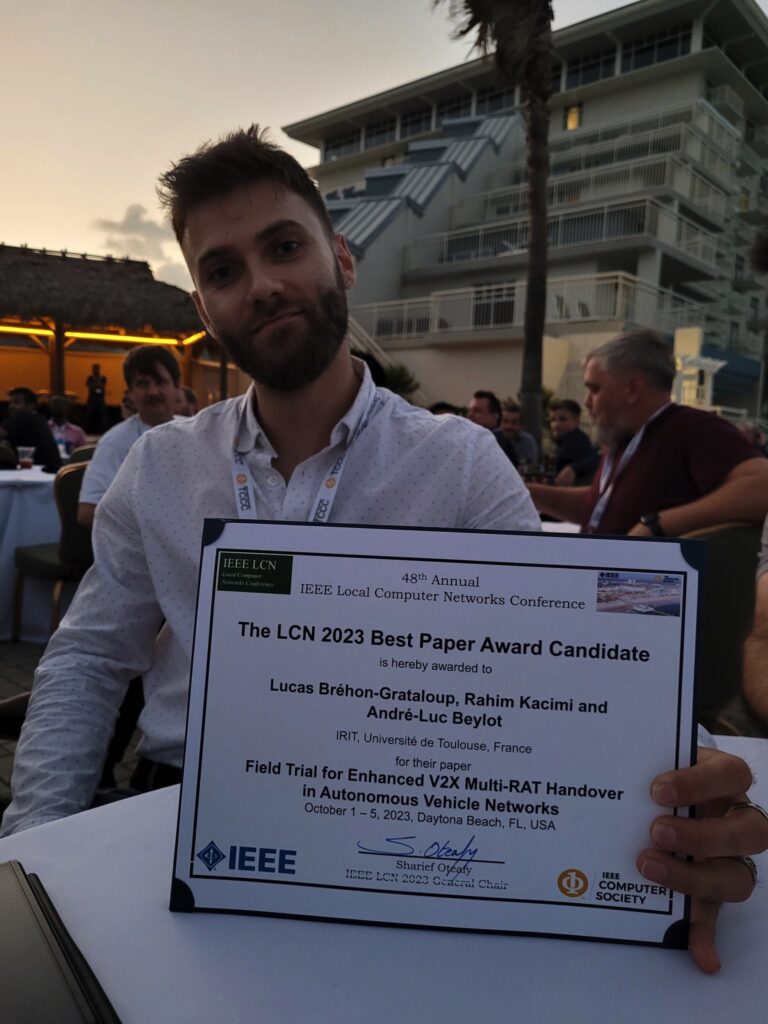Le jury de la conférence internationale IEEE on Local Computer Networks (LCN) 2023 a décerné un accessit à Lucas BRÉHON-GRATALOUP, doctorant.
Lucas BRÉHON-GRATALOUP a présenté lors du congrès son article « Field Trial for Enhanced V2X Multi-RAT Handover in Autonomous Vehicle Networks » co-écrit avec Rahim KACIMI (reponsable de la plateforme autOCampus) et André-Luc BEYLOT (IRIT).
Résumé de l’article :
To enhance road safety and traffic fluidity, vehicles need to communicate amongst themselves and transfer large amounts of data to the infrastructure with extremely low latencies, through access points deployed closely to the road. However, in obstacle-heavy scenarios, latency increases when devices shift coverage areas. Though networks are heterogeneous by nature in the smart city era, very few mechanisms are provided in connected vehicles for multiple Radio Access Technology (multi-RAT) selection. We thus present a networking approach to improve link stability, exploiting mobile and V2X technologies: LTE, 5G, Cellular-V2X, DSRC. Unlike opportunistic handover schemes taking advantage of Device-to-Device (D2D) communications when coverage is detected, we develop a proactive scheme leveraging the performance of received packets, to avoid link failure against pathloss and shadowing. An autonomous shuttle roams the playground, filling grids associating positions with QoS indicators. The grids then provide knowledge on RAT performance to incoming vehicles, facilitating selection according to position. Experimental studies show high performance of DSRC in short range, line-of-sight situations, while C-V2X offers up to 60% longer D2D ranges and more resilient coverage. Field trial analysis of our solution highlights a 27% reduction of high-latency packets, by extending V2I communications and limiting reliance on cellular connectivity.
Félicitations !
Ces travaux de thèse s’inscrivent dans le cadre :
– du projet Vilagil, piloté par Toulouse Métropole en lien avec la Région Occitanie, projet retenu par l’Etat dans le cadre de l’appel à projets « Territoires d’Innovation et de Grande Ambition ». VILAGIL veut améliorer les conditions de déplacement des populations dans Toulouse d’ici 2030 au travers du développement de technologies et de services nouveaux liés à la mobilité aérienne urbaine, l’intelligence artificielle et les data entre autres
– de la plateforme autOCampus
– du groupement d’Intérêt Scientifique neOCampus, initiative de chercheurs de différents laboratoires du campus de l’université Toulouse III – Paul Sabatier visant à créer des synergies de recherche et innovation entre 20 laboratoires de la Région


